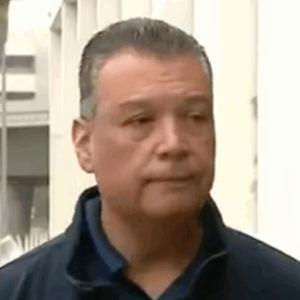
I was 38 years old when my parents passed away, and as their only child, it was up to me to handle everything. It wasn’t easy, but I started going through their belongings, focusing on important paperwork and unpaid bills. My plan was to move into their house—after all, it was now mine, and it would save me the cost of rent.
That’s when I stumbled upon something that would change my life completely. Inside a box in their closet, among old documents, I found a letter addressed to me. I had never seen it before. Attached to it were adoption papers. At 36 years old, I found out by accident that I was adopted. My parents had never told me, and it seemed they never intended to.

What was I supposed to do with that information? I turned over the document and saw my biological mother’s full name and address. She lived in San Antonio.
After months of going back and forth in my mind, I gave in. I bought a plane ticket and looked her up on social media. I even found out where she worked—a coffee shop, where she was a barista and waitress.
And then, it happened. I was sitting in the coffee shop, looking at the woman who had given birth to me… and she had no idea who I was. I couldn’t bring myself to speak to her.
But as life often does, it threw me a surprise I never saw coming.
I wasn’t even reading the menu when I looked down, heart pounding in my chest. The kitchen door creaked open, and she stepped out with a tray of drinks. She handed out lattes at a nearby table with warm brown eyes and a peaceful smile. She was shorter than I imagined.
My mind raced: Should I speak? Should I leave? As I built up the courage, I heard her say,
— “Camilo! Please bring out more almond milk!”
Her voice was soft but certain. I froze.
Camilo, the young guy at the bar, ran off to help. She glanced in my direction and gave me a polite server’s nod. I raised my hand slightly to wave, meaning to say something—but before I could, another customer called her away.
I couldn’t stop there. I made my way to the bathroom and splashed cold water on my face. As I walked out, I bumped into a man coming in from the side. He wore a worn baseball cap and had kind eyes. After a quick apology, he asked:
— “Are you okay?”
I nodded.
— “I’m new here. Just a little nervous.”
He smiled kindly.
— “Don’t worry. This place feels like home once you settle in. Our barista, Martina, makes everyone feel welcome.”
Martina. That was it. My biological mother’s name was Martina Delgado. Hearing it spoken so casually made it feel all the more real.
I tried to calm my nerves and went back to my seat. My coffee had gone cold, but I drank it anyway. It was now or never. I caught Martina’s eye and gave a small gesture. She approached.
— “Is everything alright?” — she asked, placing a napkin in front of me. Her hands trembled slightly. Maybe she sensed something.
I cleared my throat. My palms were sweating.
— “Hi, um… do you have a moment?”
She glanced around at the crowded tables, then nodded.
— “Sure, I can spare a minute.”
— “Could we maybe talk outside?” — I asked, gesturing to the side door. — “It’s a bit noisy in here.”
She looked confused.
— “I… guess so. Just give me a second.”
She told a coworker she’d be stepping out. We walked outside into the Texas heat, softened by a gentle breeze. I stood there, facing the woman who had given me life.
I took a breath.
— “Martina, my name is Ramón,” — I said carefully. — “This is going to sound crazy, but… I think I’m your son.”
Her expression changed from polite interest to deep confusion.
— “I… I’m sorry, what?”
— “I was adopted as a baby,” — I explained, showing her the folded adoption papers. She could see the seal. — “I only know your name, your address in San Antonio, and that you’re my biological mother.”
Her eyes widened, flooded with emotion. Then she gasped softly, stepping back and covering her mouth. For a moment, she looked like she might faint.
— “R-Ramón…” — she stammered. — “I… I don’t know what to say.”
I didn’t either. So I told her everything—about finding the letter, losing my adoptive parents, and the long months of wondering. As I spoke, tears welled in her eyes. I could see the pain, the shock, and a flicker of hope.
— “I didn’t have a choice,” — she whispered. — “I was so young… My parents forced me. They said adoption was best. But I never forgot you. Not a single day.”
We stood there, surrounded by emotions we didn’t know how to name. She told me she had come from a strict family. She was just out of high school when she got pregnant. Her parents insisted on adoption. Martina said she wanted to keep me, but they pressured her relentlessly.
She started crying, and I instinctively hugged her. It was clumsy—two strangers trying to hold on to something. But something shifted in that moment. A missing piece of me slid into place.
We stood on the back patio for what felt like forever. Eventually, Martina stepped back and wiped her tears.
— “Would you like to come to my house for dinner tonight?” — she asked, her voice trembling. — “If you’re free… I’d love to talk more.”
My throat tightened. I nodded.
— “Yes. I’d like that.”
That night, I took a cab to a modest one-story home on the edge of San Antonio. Martina welcomed me with a smile that was nervous and full of hope. The living room smelled of lavender. Family pictures lined the walls. She introduced me to Camilo—the young man from the café—her nephew. He was stunned when she told him who I was.
Over a meal of homemade chicken stew and fresh bread, Martina shared her life with me. She had married young, but the relationship ended. She never had more children. She confessed that part of her heart had always remained hollow.
In return, I told her about my adoptive parents—how kind they were, how loved I felt. I told her how I had been hurt they never told me I was adopted, but I no longer felt angry. Grief had shifted my perspective. They did what they thought was right.
The more we talked, the more I realized she wasn’t a stranger. Her laugh had the same pitch as mine. She squinted just like I did when trying to remember something. I saw myself in her.
Then she did something unexpected. She went to a cabinet and returned with an old yellowed envelope. Inside were baby photos—of me.
— “I managed to take a few before the adoption was finalized,” — she said softly. — “It was the only way I could hold on to you.”
Seeing those pictures made tears rise in my eyes. She had kept them all these years. She never stopped thinking about me.
We talked late into the night—stories, laughter, tears.
In the weeks that followed, Martina and I took slow, careful steps toward building a relationship. It wasn’t perfect. There were gaps and awkward moments. But we agreed to stay in touch, to be open, and to be patient.
I also forgave my adoptive parents. The shock had been real, but the love was deeper. I chose to honor their memory with grace.
And I forgave Martina. She did what she believed was best. She spent decades wondering where I was. And in the end, we found each other—embracing behind a coffee shop, starting something new.
The lesson?
Sometimes the answers we fear the most are the ones we need to heal.
Truth can hurt, but it also sets us free—to forgive, to grow, to love again.
If I’d ignored that letter, I would’ve missed the chance to understand where I came from—and to feel the love of the woman who brought me into this world.
Now, standing beside Martina, I feel hopeful. We can’t change the past. But we can begin a new chapter—one day at a time.
Thank you for reading my story. If it touched you or made you reflect on your own journey, please share it. You never know whose life might be changed by a simple moment of courage and connection.
If you believe in second chances and the power of love, give this post a like—and pass it on to someone who might need it.
Because we never know how far compassion can go.





